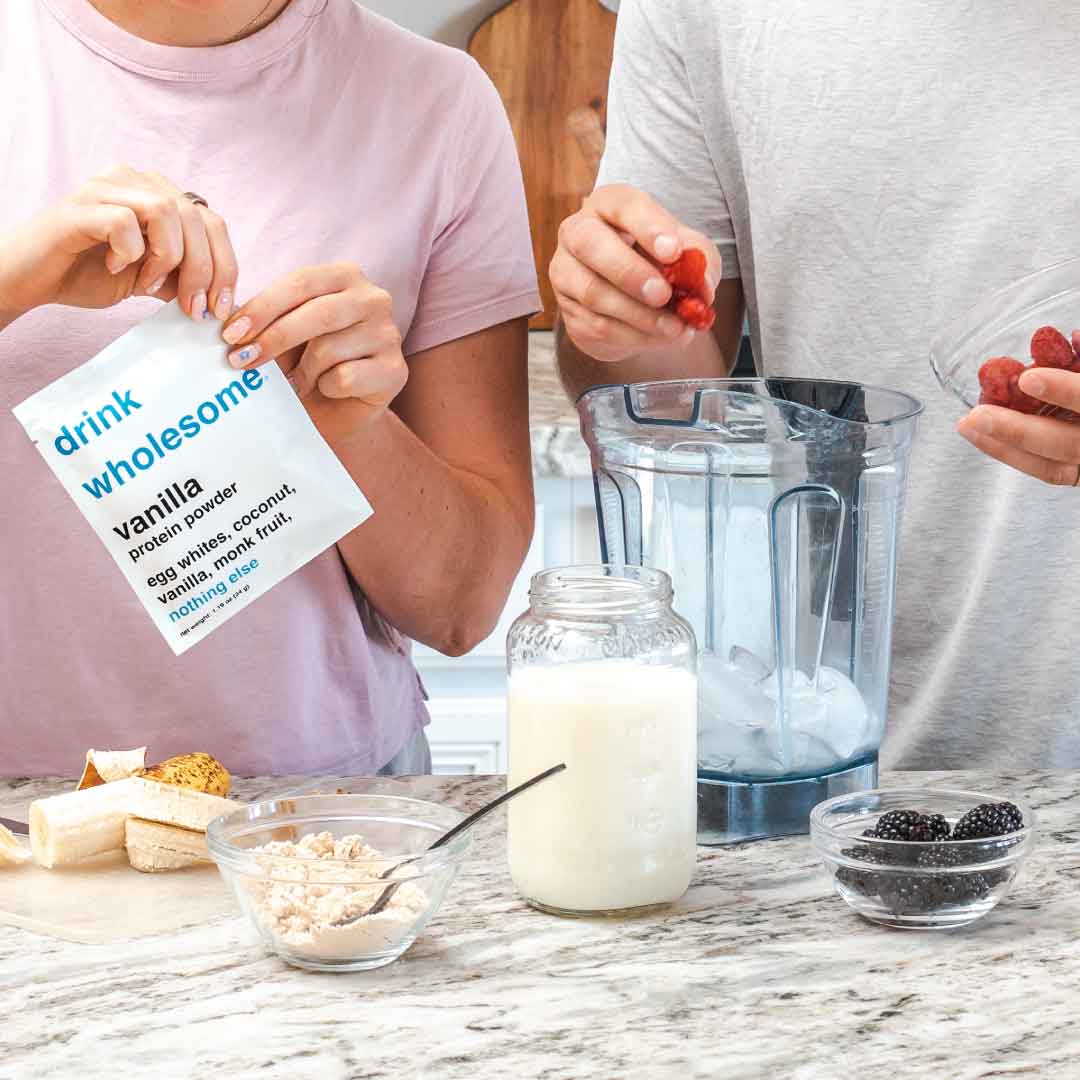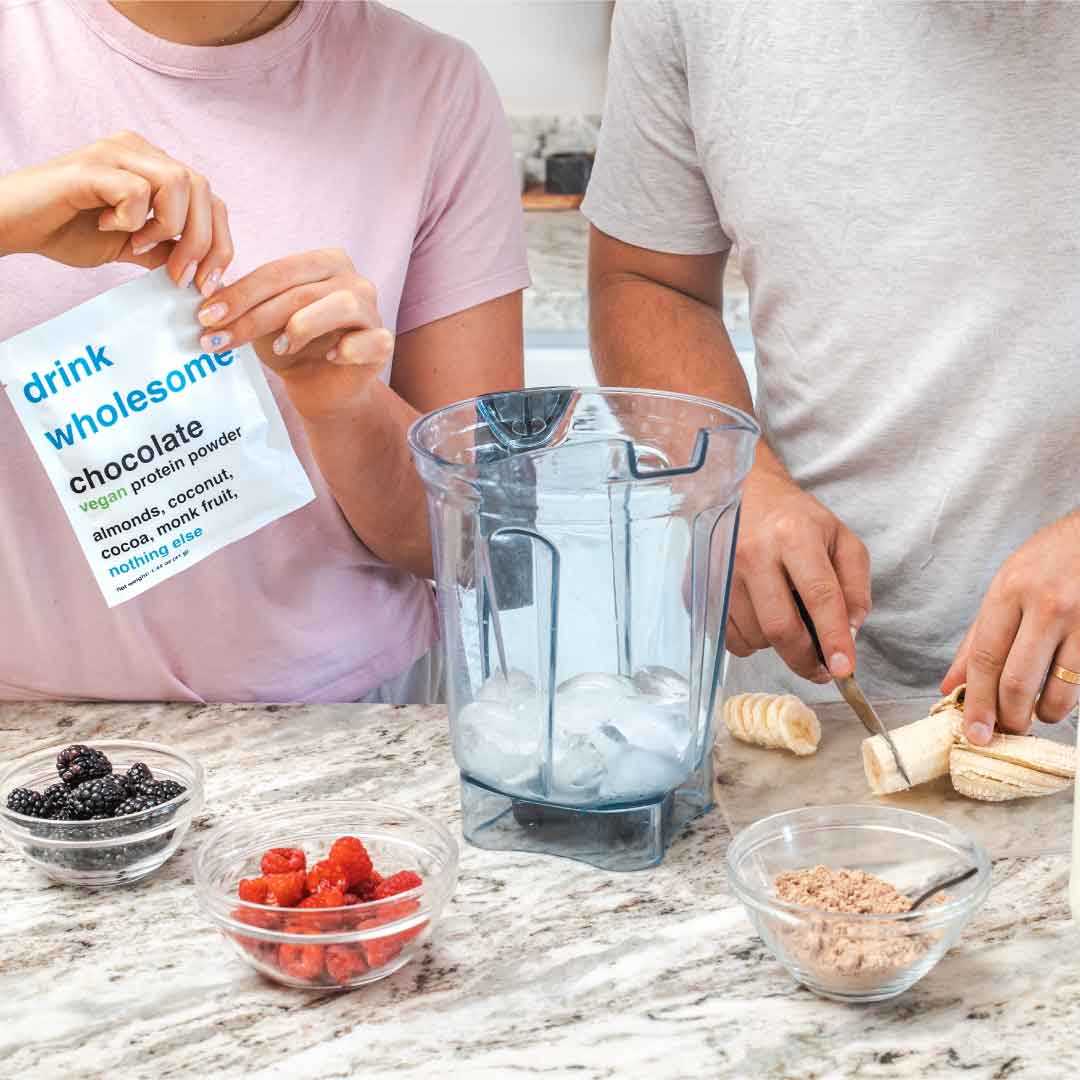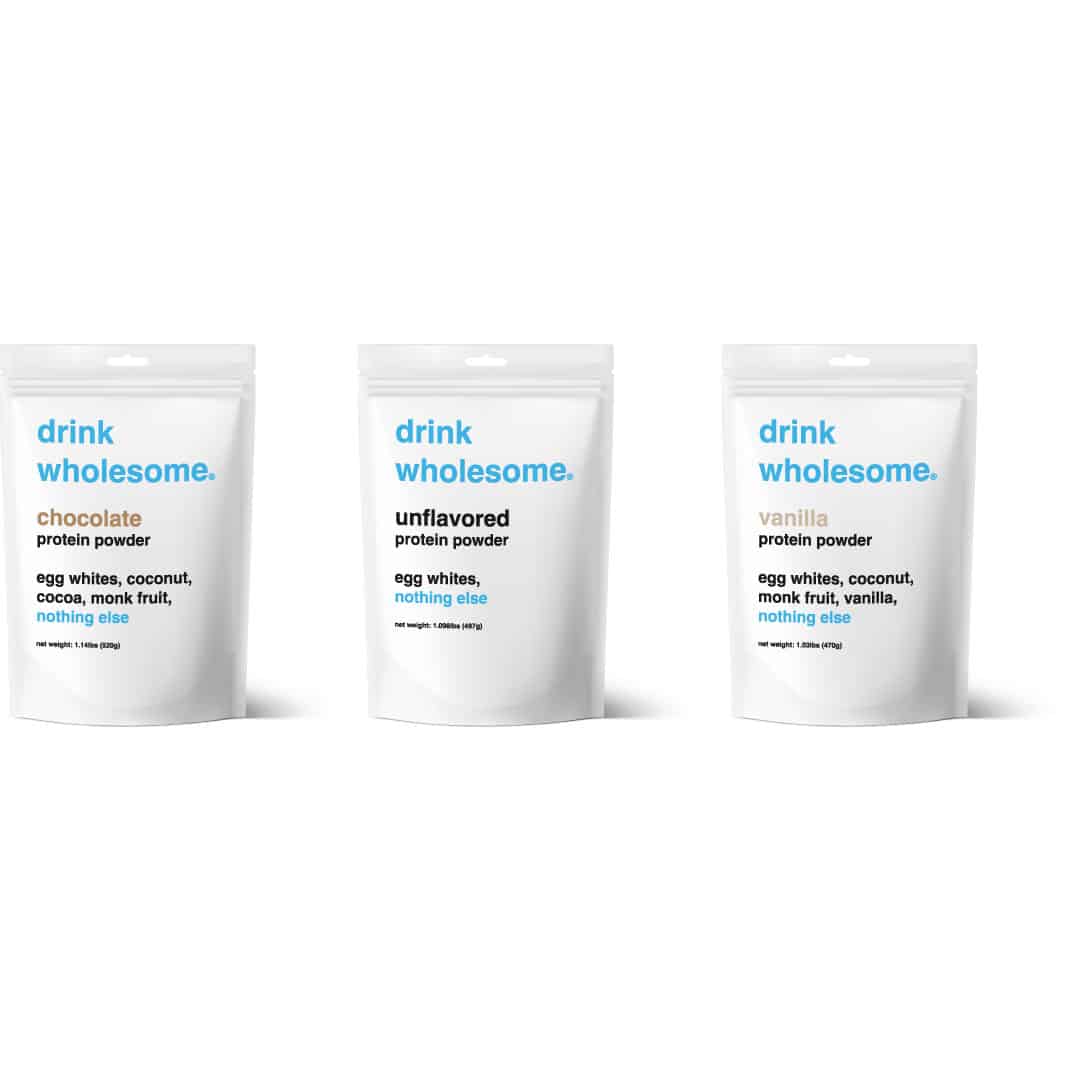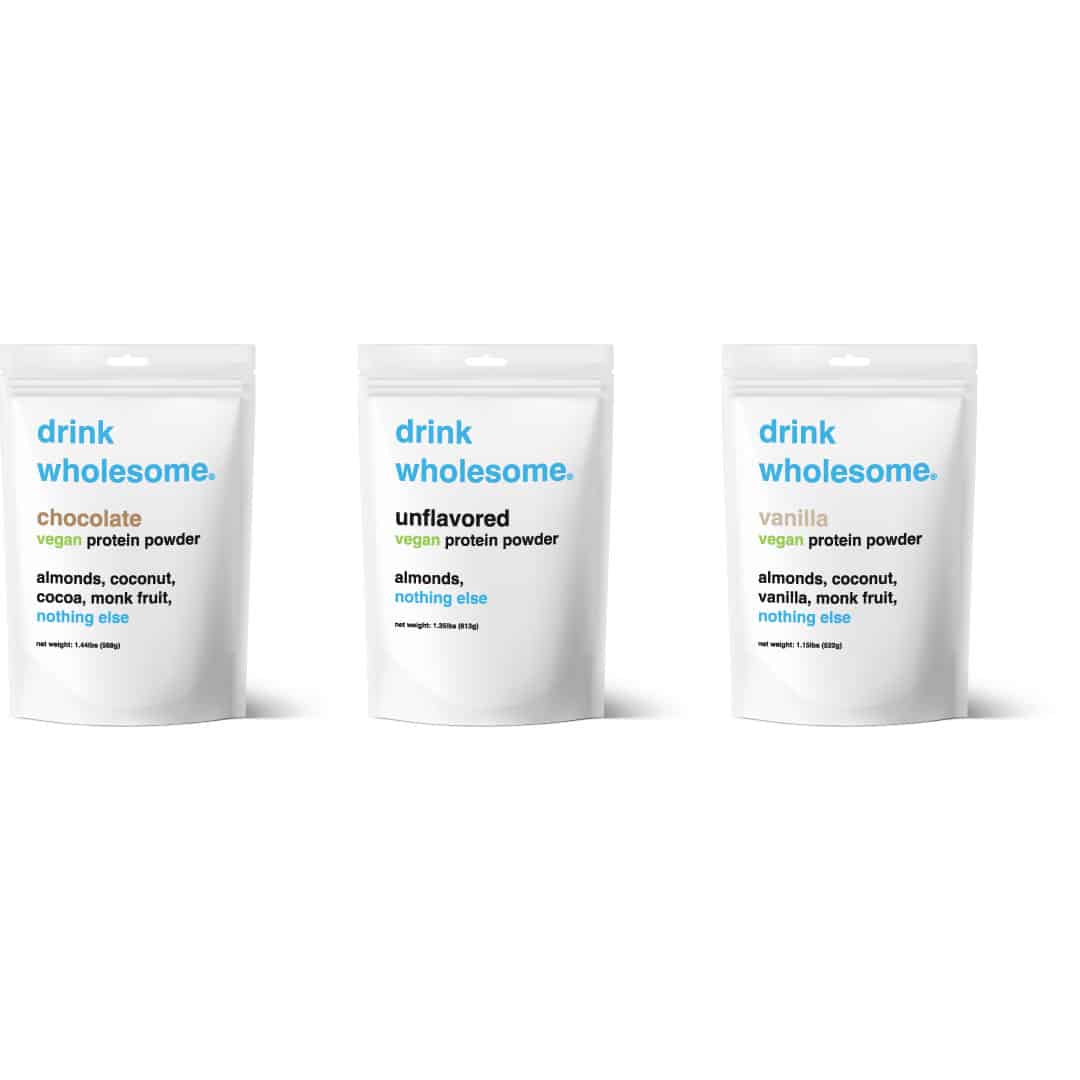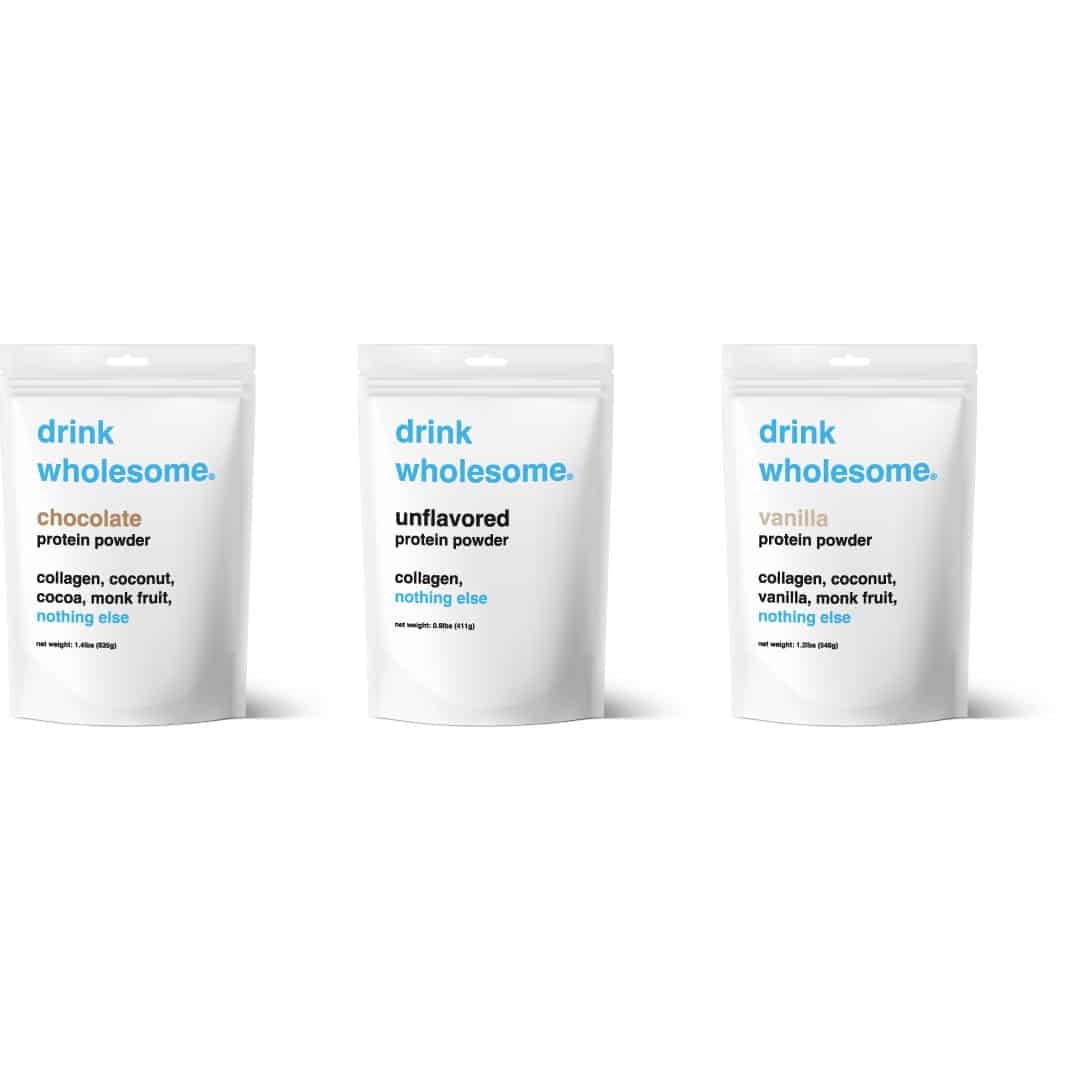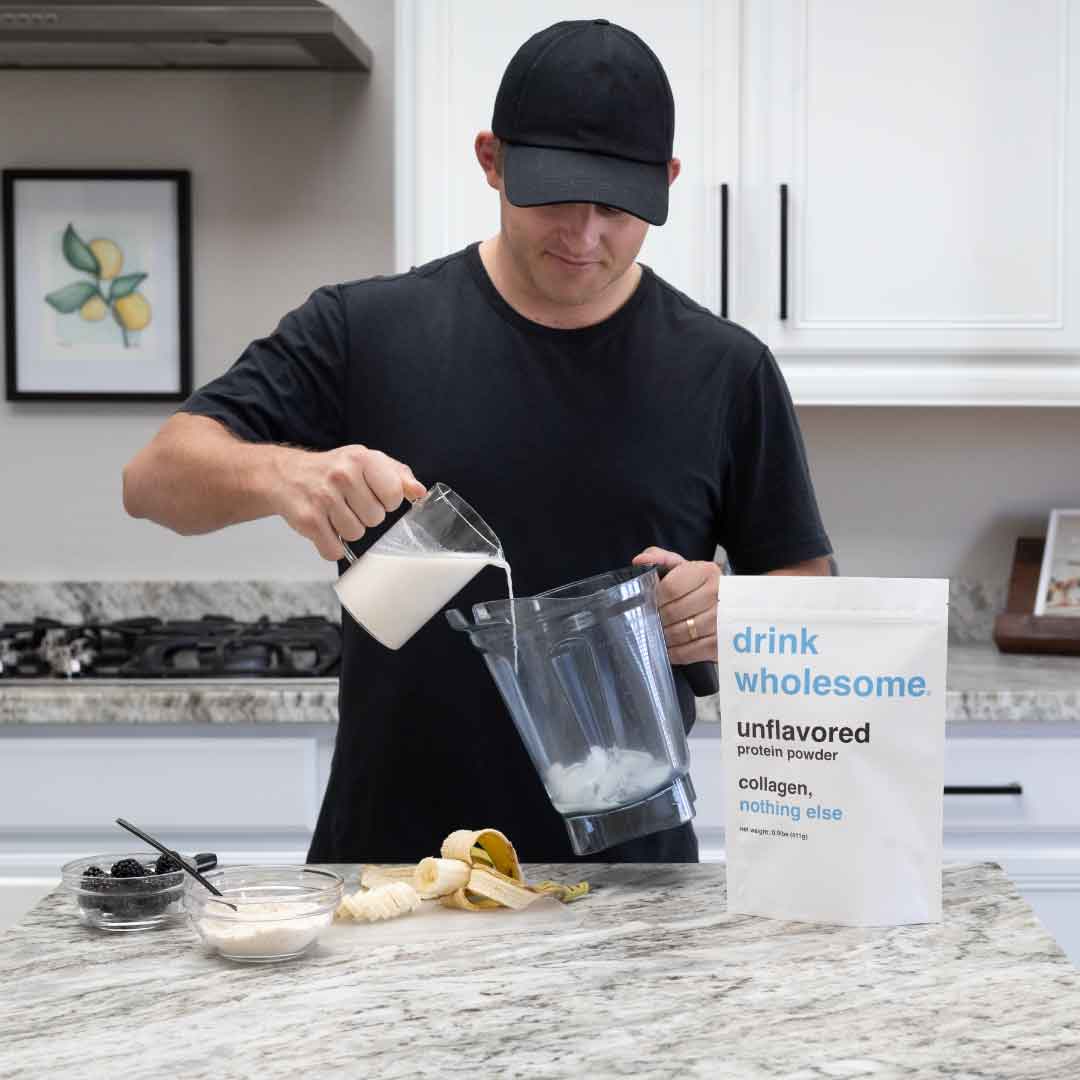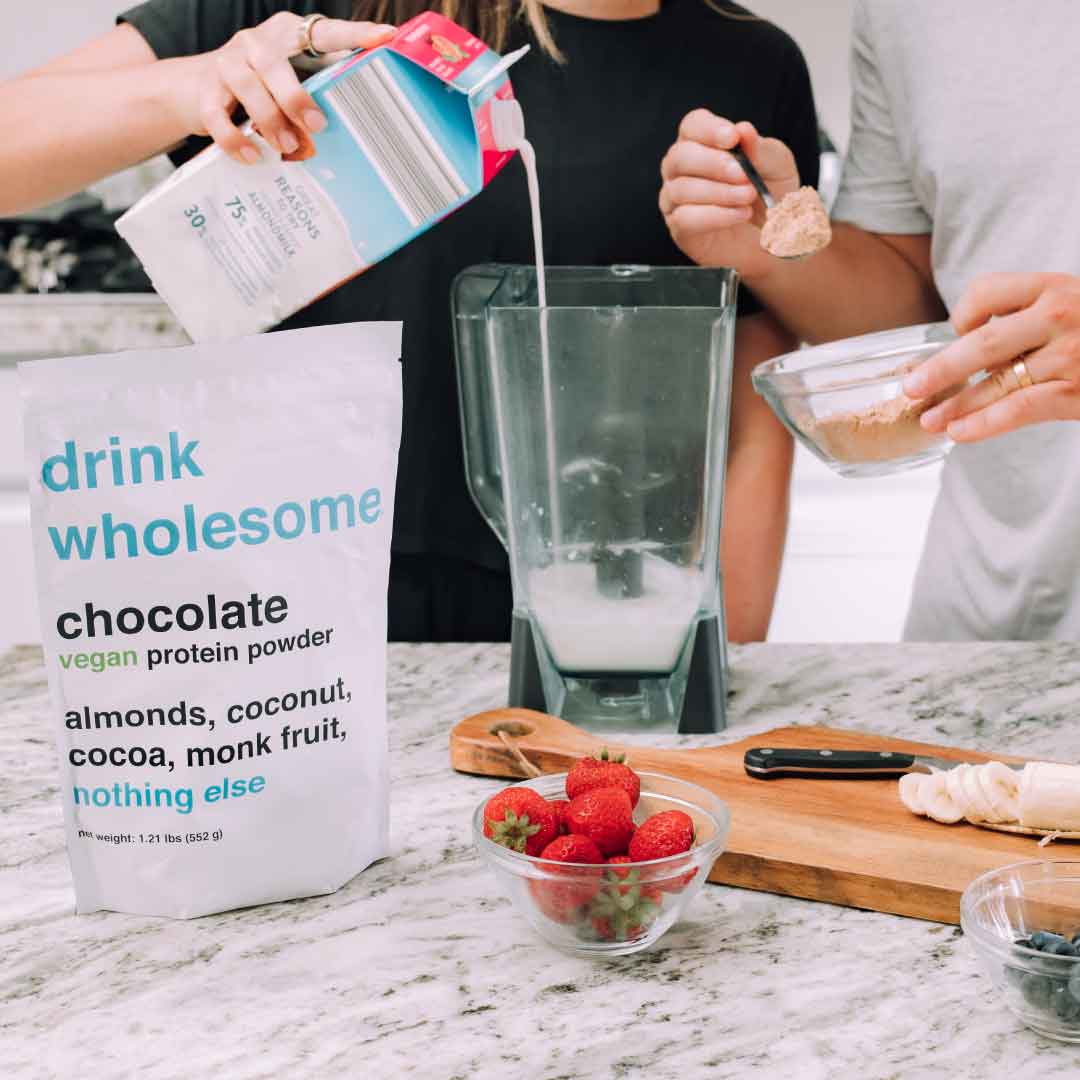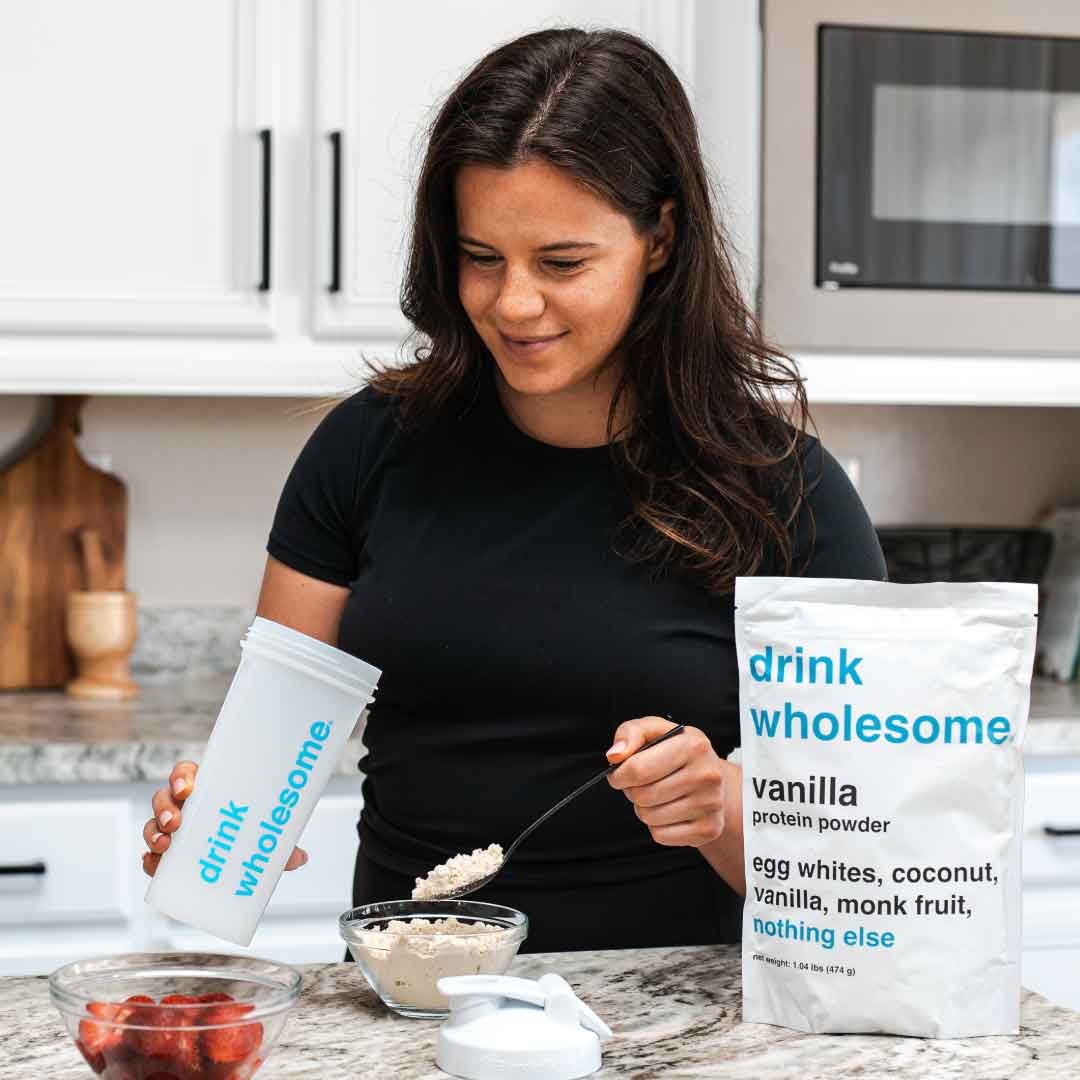What is the best protein powder for teens?
If you are looking for the best protein powder for teens, you have come to the right place. Keep reading to learn how to pick a protein powder that can help teenagers easily and safely meet their protein needs. This article was written by Jack Schrupp & Brittany Adelman, RDN.
How to pick protein powder for teens
Is protein powder good for teens?
Protein is crucial for their growth and development as it is found in every cell in the body and serves as a primary building block of muscles, skin, and bones. It also plays an important role in producing hormones and antibodies that protect against illness. Needless to say, eating enough protein is important for teens, especially during growth spurts.
For teenagers aged 14 to 18, the Dietary Reference Intake for protein is 0.38 grams per pound of body weight per day. For a 150-pound teenager, this translates to about 60 grams of protein.
Teenagers should try to get as much protein as they can from sources like dairy, eggs, fish, legumes, meat, nuts, and seeds. Some teenagers may find it challenging to meet their protein needs this way, however, especially if they have dietary restrictions or food aversions. This is where protein powder can help.
What are the benefits of using protein powder?
Incorporating protein powder into a teenager’s diet can support their growth, development, and overall health. Here are a few advantages of using protein powder for teens:
Energy
Protein is a source of energy for the body. Protein powder can help sustain a teen’s energy levels throughout the day, keeping them energized for school, sports, and extracurriculars.
Immune system support
Protein is needed for the production of antibodies and immune cells. By incorporating protein powder into their diets, teens can support their immune function and stay healthy.
Hormone regulation
Adequate protein intake is necessary for hormone synthesis and regulation, especially during adolescence when hormonal changes are prevalent. Protein powder can help maintain hormonal balance, supporting teens as they navigate growth spurts.
Cognitive function
Dietary protein is essential for brain health and cognitive function. Protein powder can provide the amino acids needed for neurotransmitter synthesis, focus, and mental clarity, helping teens keep up with demands of school and sports.
Bone health
Protein plays a role in bone formation and mineralization. Protein powder can helps teens build and maintain strong and healthy bones,
Weight management
Protein plays a role in appetite regulation and satiety, making you feel full and satisfied after meals. Protein powder can be a useful tool for helping teens maintain a healthy weight by supporting portion control, reducing cravings, and promoting lean muscle mass development.
Insights from a registered dietitian:
Teenagers lead busy lives, juggling school, extracurricular activities, and social commitments. With such hectic schedules, it can be challenging for them to find the time to prepare and enjoy nutritious meals. This is where protein powder can be a valuable tool in supporting healthy eating habits. Registered dietitian, Brittany Adelman, shares her favorite ways to use protein powder:
Protein-packed smoothies
Blend your fruit, milk or yogurt, and protein powder for a refreshing and protein-rich smoothie. You can also add veggies like spinach, kale, and riced cauliflower for extra fiber and nutrients.
Protein pancakes
Add protein powder to whole wheat pancake batter for a boost of protein in the morning. Top your protein-rich breakfast with fresh fruits for a delicious and balanced meal that will help your teen full until lunch.
Protein energy balls
Mix protein powder with nut butter, oats, and honey to create high protein energy balls that your teen can grab for a snack on-the-go. They can be stored in the freezer.
Protein yogurt
Stir protein powder into Greek yogurt for a quick and easy high protein snack. Add some fresh berries or granola for extra flavor and crunch.
Protein oatmeal
Add protein powder to whole wheat pancake batter for a boost of protein in the morning. Top your protein-rich breakfast with fresh fruits for a delicious and balanced meal that will help your teen feel full until lunch.
Protein-fortified baked goods
Replace some of the flour with protein powder in muffins, cookies, and other baked goods to increase their protein content. Your teen will not even notice the difference!
Protein ice cream
Blend frozen bananas, protein powder, and a splash of milk to create a creamy and protein-packed ice cream alternative. Teens love this healthy dessert.
Remember, protein powder should be used to supplement your teen’s diet. If your teen is struggling to eat meals consistently or maintain a healthy weight, seek support from a registered dietitian.
In short, adding protein powder to a teenager’s diet is an easy way to fill in nutritional gaps and support growth, development, and overall health. It can be used to make protein shakes, or added to smoothies, oatmeal, and other recipes.
Is protein powder good for teenage athletes?
If they need the extra protein, protein powder can help teenage athletes enhance their athletic performance. When they engage in physical activity, teens create microscopic tears in their muscle fibers. Proper nutrition, including adequate protein intake, is crucial for repairing these tears and building stronger muscles.
Protein powder is an easy and convenient way to boost protein intake between training sessions and competitions. It can be used to make protein shakes on-the-go, serving as a quick source of nutrition for teenage athletes when other options are not available. That said, not all protein powders are created equal.
Is protein powder safe for teens?
Most protein powders are made with ingredients that can cause painful side effects and long term health problems. Among these ingredients are food additives, dairy-based proteins, and protein concentrates and isolates.
Avoid food additives
Regularly eating food additives like emulsifiers, thickeners, sugar substitutes, and flavorings can not only upset your teen’s stomach (more about this later), but also alter the composition and function of his or her gut microbiome – the collection of microorganisms living in his or her gut. This can lead to gut dysbiosis, or an imbalance in his or her gut microbiota. Gut dysbiosis during childhood and adolescence can persist through adulthood, where it becomes a leading driver of inflammation and contributes to wide range of chronic diseases, including inflammatory bowel disease (IBD), allergies, type 1 diabetes, autism, obesity, and colorectal cancer.
Avoid dairy-based proteins
Dairy-based proteins like whey and casein, although not an issue for everyone, can cause side effects like bloating and diarrhea. This is in part because they contain lactose, a sugar many teens cannot fully digest. It is also likely related to the amount of processing required to make them. Continue reading to learn more.
Avoid protein concentrates and isolates
Most protein powders, including all whey and pea protein powders, are made from protein concentrates and isolates. Basically, protein sources like whey and peas do not contain enough protein by weight to be used as a protein supplement, and must be mechanically and/or chemically stripped of everything but the protein, including the enzymes, fiber, and other natural digestive aids that help you break them down. This not only makes them hard to digest, but may also affect your gut microbiome.
This is all to say that although protein powder can be a helpful addition to a teenager’s diet, it is important to choose wisely. Many protein powders can do more harm than good, especially if they are consumed regularly.
What is the best protein powder for teenagers?
As long as he or she is eating a balanced diet, any type of dietary protein (egg white, pea, whey, etc.) can help a teen meet his or her protein needs. What teenagers need to worry about is added junk and extra processing.
By avoiding food additives, dairy-based proteins, and protein concentrates and isolates, teens can ensure that they are boosting their protein intake without compromising their gut and overall health. The best protein powder for teens is thus made with a short list of simple ingredients – the shorter and simpler the better.
drink wholesome is the best protein powder for teens
One of the reasons why I make the best protein powder for teens is that I do not use any food additives whatsoever.
the alternative:
Protein Matrix Comprised of (Whey Protein Concentrate, Whey Protein Isolate, Calcium Caseinate, Micellar Casein, Milk Protein Isolate, Egg Albumen, Glutamine Peptides), Polydextrose, Sunflower Creamer (Sunflower Oil, Corn Syrup Solids, Sodium Caseinate, Mono- and Diglycerides, Dipotassium Phosphate, Tricalcium Phosphate, Soy Lecithin, Tocopherols), Natural and Artificial Flavor, MCT Powder (Medium Chain Triglycerides, Nonfat Dry Milk, Disodium Phosphate, Silicon Dioxide), Lecithin, Cellulose Gum, Salt, Yellow 5, Sucralose, Acesulfame Potassium, Papain, Bromelain
Food additives are hard to digest and feed gut bacteria, which release gas as they eat. As you might imagine, too much intestinal gas can cause bloating, flatulence, and stomach pain.
Partially digested food additives also cause your colon to absorb too much water, which can lead to diarrhea. Here is a list of the most common food additives in protein powder:
acacia fiber, acacia gum, acesulfame potassium, artificial flavors, ascorbic acid, aspartame, calcium carbonate, carrageenan, cellulose gum, dextrin, dicalcium phosphate, dipotassium phosphate, erythritol, gellan gum, guar gum, gum arabic, inulin, locust bean gum, maltodextrin, mono- and diglycerides, ‘natural’ flavors, rice bran extract, rice dextrin, rice hulls, rosemary extract, silica, silicon dioxide, sodium alginate, sodium bicarbonate, soluble corn fiber, soy lecithin, sucralose, sunflower lecithin, tocopherols, tricalcium phosphate, xanthan gum, xylitol, zinc oxide
Another reason why I make the best protein powder for teenagers is that I do not use dairy-based proteins like whey and casein. Whey and casein, which are byproducts of cheese and yogurt production, resist digestion and tend to cause digestive issues.
A final reason why I make the best protein powder for teenage athletes is that I do not use protein concentrates or isolates. Nearly all other protein powders are made from one or both of these protein sources, which look nothing like real food.
Instead of using protein concentrates or isolates, I make the best protein powder for teens with whole foods like collagen, egg whites, and almonds. Protein sources like these are easy to digest and absorb. They also each bring a unique set of digestive benefits to the table.
Collagen can reduce bloating and improve digestive symptoms. Almonds are rich in prebiotic fiber and improve the composition of your gut microbiome. Egg whites are alkaline, meaning they balance the pH levels in your gut, and promote the growth of good gut bacteria.
Our customers experience fewer digestive issues with our protein powders than with any other type of protein supplement. Order samples to see for yourself.
★★★★★
simple and delicious
“My kids absolutely love drink wholesome!!! It’s a super easy way to get them a healthy meal before school, and they rave about how good it tastes.” – Alie
This content is not intended to be a substitute for professional medical advice, diagnosis, or treatment. drink wholesome is not intended to diagnose, treat, cure or prevent any disease.


